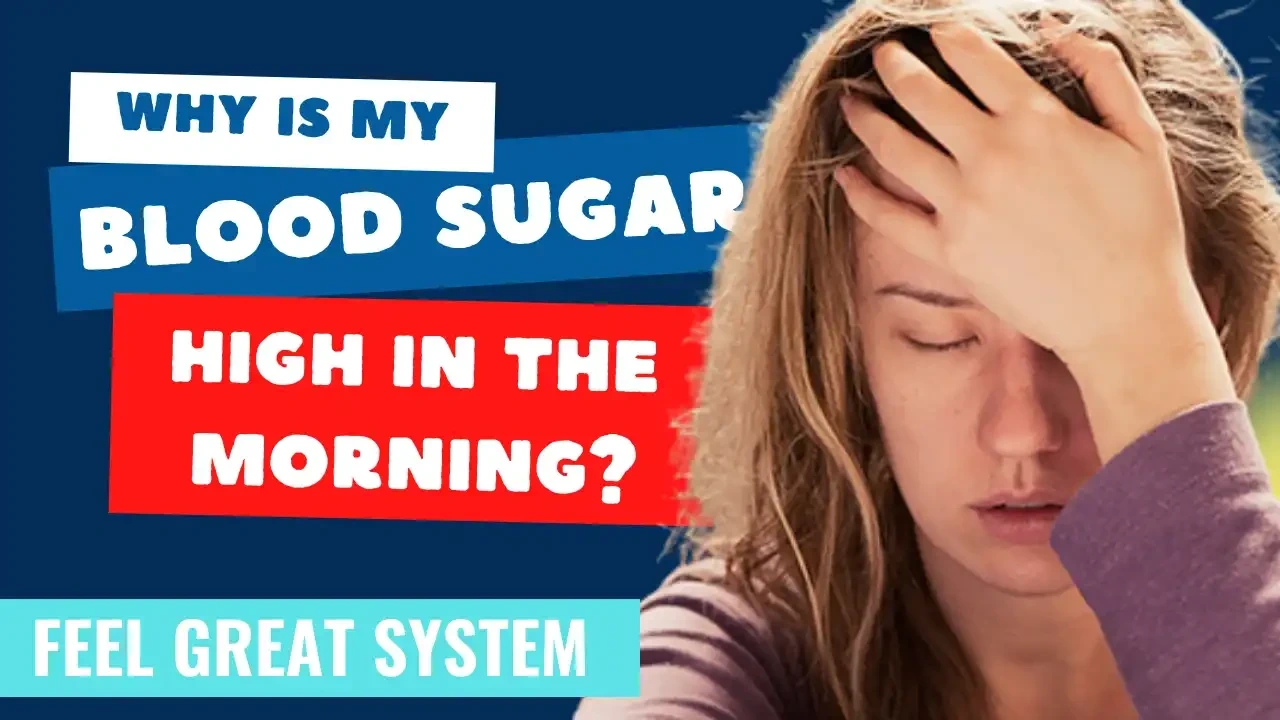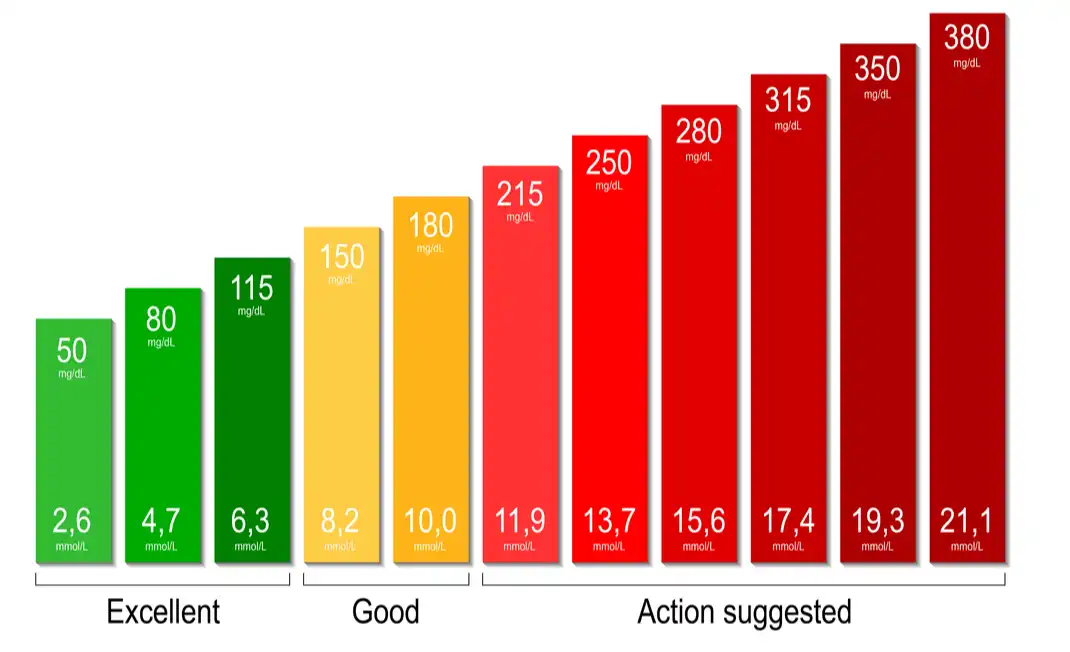Blood Sugar High in the Morning? Here's Why! | Dawn Phenomenon
Mar 21, 2022
High blood sugar in the morning may be caused by what is known as the dawn phenomenon, which is the end result of a combination of natural body changes throughout the night.
The effects of the dawn phenomenon can vary from person to person, even from day to day. According to the American Diabetes Association, the dawn phenomenon happens between 5:00 a.m. and 8:00 a.m. Some people experience an extended dawn phenomenon, which can last until midmorning.
The boost in morning blood sugar is your body's way of making sure you have enough energy to get up and start the day. For those with higher insulin resistance, such as those with pre-diabetes or type 2 diabetes, your body may not be able to use it's insulin to counteract the increase in morning glucose. That disrupts the delicate balance and your sugar readings can be too high by morning.

What Causes Dawn Phenomenon?
High morning blood sugar levels are a result of body changes and reactions that happen while you are sleeping. The body uses glucose (sugar) as one source of energy and it is important to have enough extra energy to be able to wake up in the morning. So for a period of time in the early morning hours, usually between 3 a.m. and 8 a.m., your body starts churning out stored glucose to prepare for the upcoming day.
So if you’ve been feasting on pizza or pasta recently your glycogen (carb) stores will be full. And your body usually burns carbs before switching to fat for energy. This is called Metabolic Inflexibility, and it is estimated that approximately 15% (only fifteen percent) of the population is metabolically flexible. So you will see higher glucose levels in the morning until your stores are empty. Even if your last 24 hours have been very low-carb.
Generally, these are normal hormonal changes your body makes in the morning while you have a boost in your blood sugar, it all happens whether you have diabetes or not. If you don't don't have diabetes, your body just makes more insulin to balance everything out. You don't even notice that it's happening.
At the same time, your body releases hormones like cortisol and adrenaline also known as epinephrine. Both these hormones shift your body into a fight-or-flight and carb burn mode. So this added stress leads to higher glucose levels and it also reduces the ability for insulin to do it jobs, and over extended periods of time increases insulin resistance.
But if you have diabetes, it's different. Since your body doesn't respond to insulin the same as most, your fasting blood sugar reading can go up, for most even when they follow a strict diet.
Strategies to Lower Morning Blood Sugars
The good news is that there’s loads of potential to improve. But for some with more severe insulin resistance it may take time, so you need to be patient. At the start of your Feel Great System journey you might see a change in the first few days, weeks or even a month or two. So hang in there and be consistent. And if you need a pep talk, just drop me a message to chat :)
Many people think their blood sugar numbers just depends on the last 24 hours. But it’s actually affected by the last 3-4 days of activity and eating. Think of this like a cargo ship. Even after you turn the steering wheel it takes time to change direction.
Here are a few key strategies to help you as you follow the Feel Great System program.
- Balance Fiber Matrix - Before bed take a Balance fiber matrix drink on an empty stomach. Check your fasting blood sugars in the morning. If high, take another Balance. Then enjoy your Unimate yerba mate drink. If you are on Metformin, you can take it but you will find over time that Balance will help being your sugars back to healthy range over time. Just keep an eye on your sugars. When you get hungry later in the morning, have a Balance before your first meal. Wait 4 four hours for your next meal… always have a Balance before your meal.
- Lower Stress Levels - Do your best to lower stress levels. Try daily meditation or medium-intensity exercise to lower stress to use the excess carbs. Good sleep is vital to almost every aspect of your health. Poor sleep or too few hours leads to increased cortisol levels.
- Food Journal - I always recommend to my clients to keep a food journal. Something that you can refer back to. Additionally, for your meals, try making choices of foods that are low on the glycemic index. Increase your protein and less processed carbs, as protein is more filling and will be less of an impact on your sugars. After each meal get up and move your body for 15 minutes. Go for a short walk after your meal will get the body burning that glucose.
Here is what Judy Gillman, Diabetes Educator and Nurse Practitioner has to says...
As a nurse practitioner and certified diabetes educator being able to stabilize blood glucose, lipids and weight with THE FEEL GREAT SYSTEM products has truly been a gift for people. This is the only real treatment that works for to normalize glucose levels. ~ JUDY GILLMAN, NP-R, RN, CDE
Ready to Feel Better Than You Have in Years?
Try the Feel Great System Today

More energy. Better focus. Healthy blood sugar support. Sustainable weight loss.
Even if everything else you tried before has failed.
Order now with a 100% satisfaction guarantee.
Have questions? Contact Doug:
Click the Message/Chat Button
Send Email
Call/Text: 1-902-201-0245


